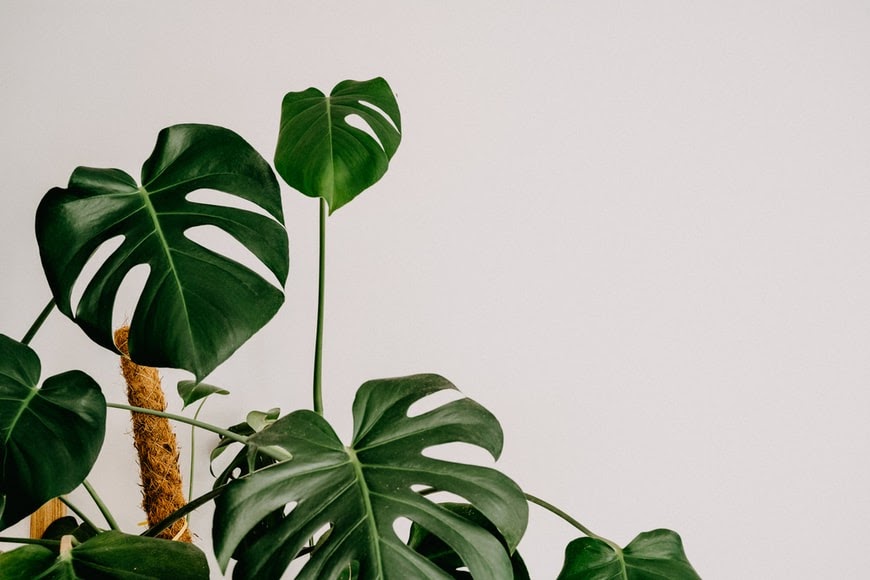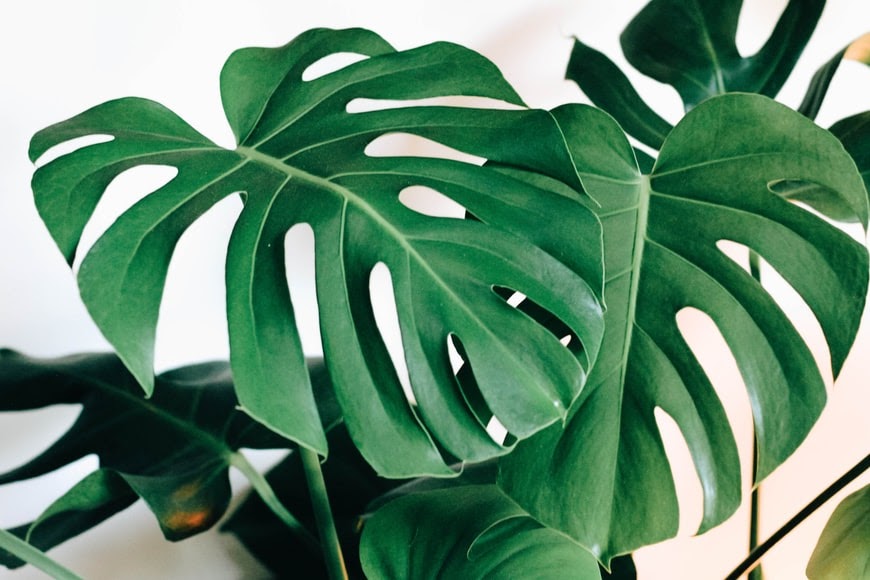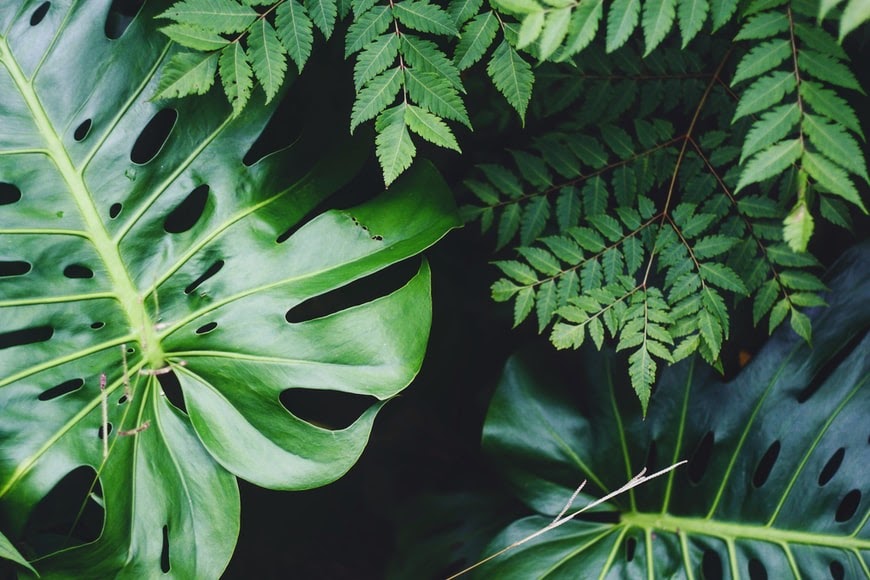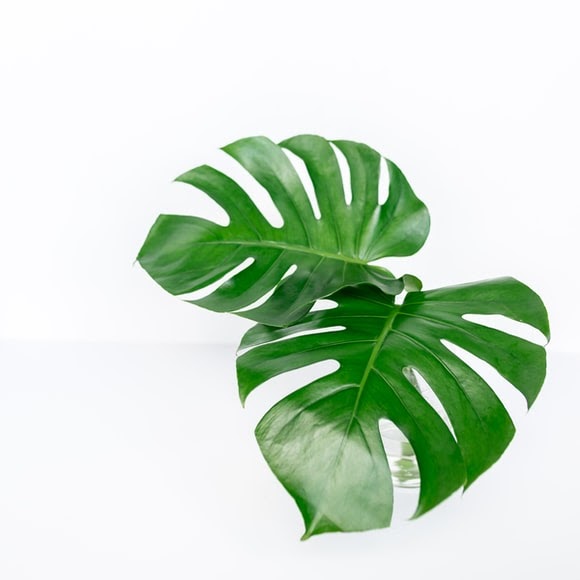Monstera deliciosa is a plant perfect for both indoors and outdoors. It will look majestic in your garden with its wide huge leaves while indoors, it will enhance the ambience and bring a more natural appeal to the space. Monstera is not that difficult to grow however, it can be toxic to your pets. Monstera bear flowers that are tan in hue beautifully contrasting its forest green lush.
Montsera Deliciosa Vitals
| Common Names | Split-leaf philodendron, Swiss cheese plant, window leaf, ceriman |
| Botanical Name | Monstera deliciosa |
| Family | Araceae |
| Plant Type | Climbing evergreen |
| Mature Size | 3 ft. tall, 2-3 ft. spread |
| Sun Exposure | Bright indirect sunlight, partial shade |
| Soil Type | Peat-based potting soil, well-drained |
| Soil pH | Acid or neutral |
| Bloom Time | Mid-summer |
| Flower Color | Cream |
| Hardiness Zones | 10-12 |
| Native Area | Central America |
| Toxicity | cats and dogs |

Light
Monstera loves a natural abundance of light. The ideal temperature for this plant is 65 to 75 degrees Fahrenheit. If you are to expose monstera directly to harsh sunlight, it may burn and diminish its foliage. Indoors, on the other hand, as long as it gets enough light, monstera will grow lush and healthy. Monstera is ideal to grow under a shade or semi-shaded areas with ample fresh air.
Soil
The soil best for monstera is a peat-based medium. A slightly sandy, medium loamy, and heavy clay soil containing a good amount of acid and neutral pH will help monstera thrive better. Also, it is important that the soil has an effective draining system.

Water
During the growing season, the best way to water monstera is every once or twice per week. Make sure to drain the excess water completely from the last time you watered your plant. Also, excess water must not be returned to the pot given it has no longer have the nutrients the plant needs. On the other hand, in terms of increasing humidity when your monstera is located indoors, the occasional misting of foliages will keep them looking fresh, lively, and lush.
Fertilizer
The perfect fertiliser balance for monstera is a balanced liquid 20-20-20 that needs to be fed to your plant every few weeks. ½ tablespoon of fertiliser must be diluted in a gallon of water. It will be enough to suffice your plants’ needs. Feed the fertiliser as if you are simply just watering your plants.

Pruning
Trim all the aerial roots if you think your monstera is already taking too much of the space. Also, you can tuck them or train them to grow higher than wider. You can also trim the leaves and stems and use them for propagation.
Monstera is an eye-catching plant that brings a touch of lush forest into your garden or inside your home. With proper care. Your monstera will thrive into a beautiful plant and will produce flowers that will delight your eyes. So whether you place them indoors or outdoors, these simple care tips will make a lot of difference in terms of your monstera’s appearance.



